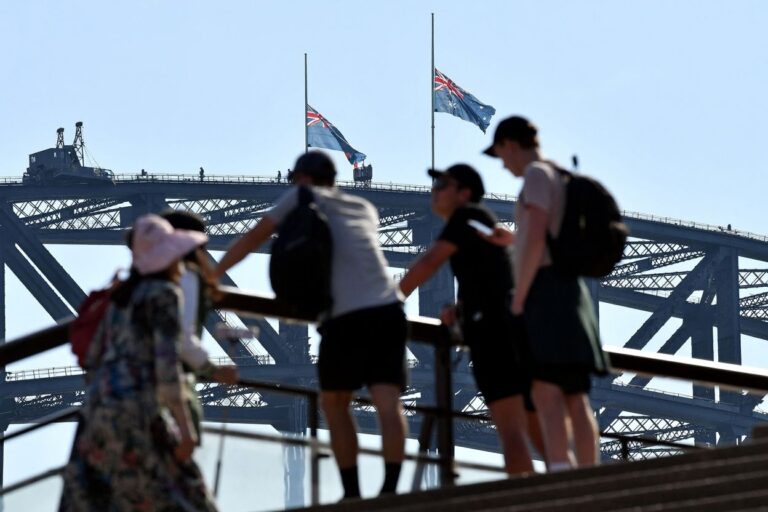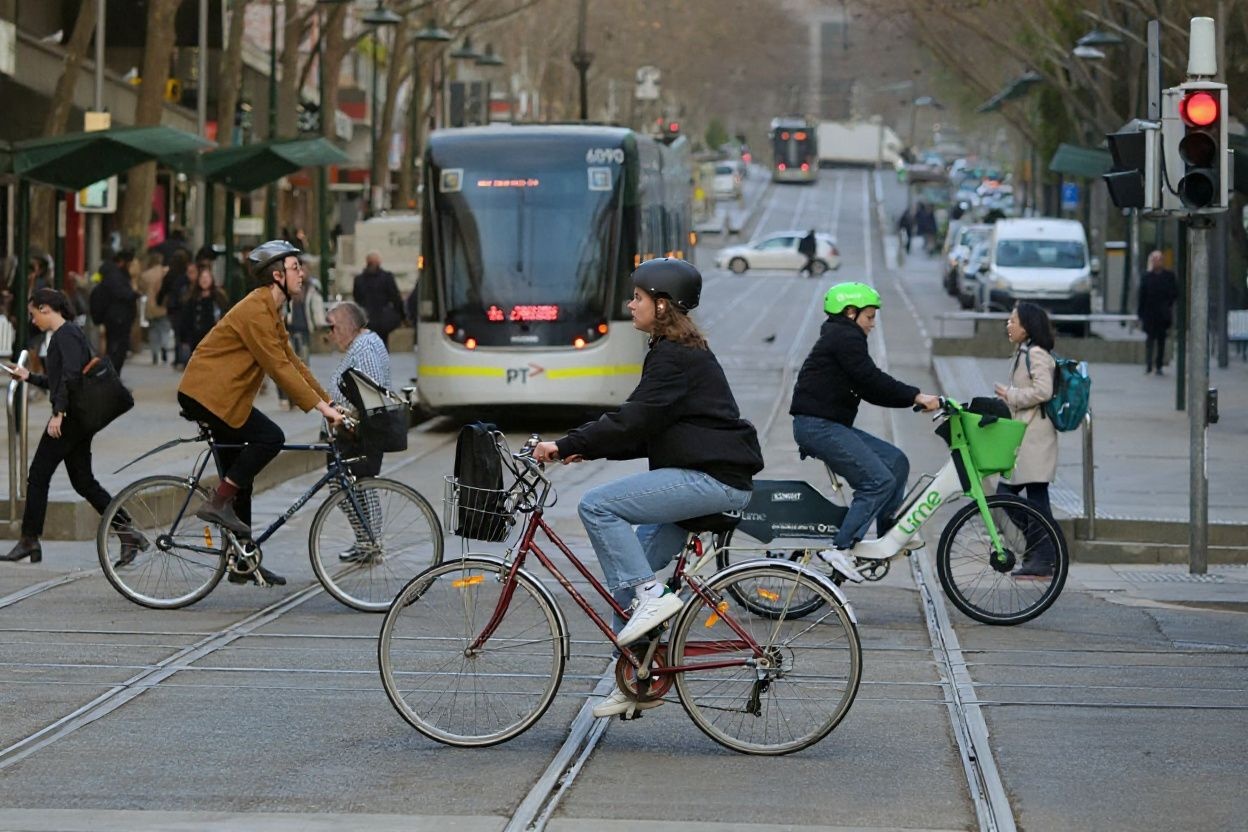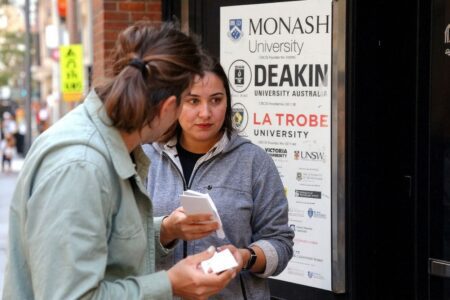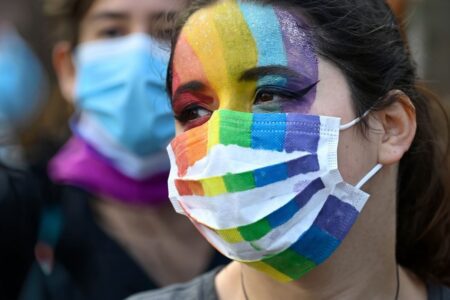
On top of having to pay the highest student visa fees to date, international students hoping to study in Australia for the 2025/26 academic year will face yet another challenge.
On August 27, 2024, federal Education Minister Jason Clare announced that the Australian government will limit the admission of new international students to 270,000, reducing numbers by nearly 20,000.
Figures show that as of May 2024, 810,960 international student enrollments were made across Australian universities and vocational education and training (VET) courses, schools, English language courses, and non-award programmes, a 17% increase from 2019’s pre-Covid-19 figures.
Under the cap, publicly funded universities will accept around 145,000 new international students in 2025, consistent with 2023 levels. Another 95,000 will be allotted for VET courses, which the government says will bring the figures down to pre-pandemic levels.
In the announcement, Clare also said that individual universities had been informed of their 2025 “indicative levels,” but this has been disputed.
 Each year, more than 170,000 international students from over 170 countries choose to come to Victoria to study, according to Study Melbourne.
Each year, more than 170,000 international students from over 170 countries choose to come to Victoria to study, according to Study Melbourne.
What Australian universities are saying about the international student cap
The University of Melbourne, Australia’s best-ranking higher education institution on the QS World University Rankings 2025 list, released a statement the same day the cap was announced.
In the article, Vice-Chancellor Professor Duncan Maskell states that the “University of Melbourne received information about the indicative cap to be imposed on international students at the same time as the Minister was making his public announcement” and that “this methodology was never discussed with us and there has been no consultation process.”
The article continues by reporting that the university is assessing the implications of this cap, as well as that they are seeking clarity from the government about the “complex methodology that was used to inform their figures.”
“The University remains strongly opposed to this cap on international student enrolments,” they write. “It is staggering that we continue to have this debate while there is apparently no serious intent to address really major reform issues.”
On September 9, 2024, the University of Melbourne released a second statement after receiving its student cap for new, incoming international students in 2025.
For the year ahead, the university is set to welcome only 9,300 students. In comparison, they enrolled more than 10,400 new international students and had anticipated to grow the number to over 11,000 in the upcoming year.
“The consequences of the proposed cap will become clearer in the weeks ahead,” writes the statement. “However, there is no doubt that they will be significant and damaging for the University.”
Those still interested in enrolling at the University of Melbourne can take a look at the FAQ page set up for all things regarding the student caps.
Monash University, Australia’s largest university with a presence on three continents, has also released a statement on the day of the announcement on August 27, 2024.
They acknowledge the announcement and echo the University of Melbourne’s statement that it received the indicative international commencing student limit “today.”
“We are currently working to understand the rationale supporting the figure provided and the subsequent full implications of the Government’s announcement,” writes the university. “We will also continue to advocate for policies that recognise the significant contributions international students make to Australia’s academic and broader communities.”
View this post on Instagram
How to study at an Australian university without going to Australia
While the changes for new international students to study in Australia are looking a little bleak, there is another alternative for those who are determined to earn their degree from an Australian higher education institution.
Overseas campuses, more formally known as international branch campuses, have been a way for universities to have a physical presence outside their home country to provide the same offerings to the students there.
This may be done through partnering with local institutions or the university simply establishing itself in the country on its own.
Regardless, by attending these overseas campuses, graduates are conferred degrees from one or all partnering institutions, depending on the agreement.
Australia already has a range of overseas campuses.
Monash University, for example, has a presence on three continents.
It has a campus in Malaysia with over 7,000 students and a campus in Indonesia — the country’s first-ever international, foreign-owned university. It has also partnered with China’s Southeast University (SEU) to create a Joint Graduate School and a Joint Research Institute in Suzhou, and partnered with the Indian Institute of Technology Bombay (IITB) to create a Research Academy in north-eastern Mumbai. Existing Monash students may also head over to the Prato Centre in Italy to participate in short courses, workshops, seminars, and conferences as part of their degree.
On September 16, 2024, Melbourne-based daily tabloid newspaper The Age reported that the Australian state of Victoria would provide cash incentives to universities and technical and further education (TAFE) to set up campuses and educate students overseas in a bid to circumvent Australia’s cap on international students.
“We say yes to international students because they boost our economy and our global reputation, they support our small businesses, and they keep our multicultural state connected with the world,” said Allan in a speech to a room packed full of Indian business leaders, media, and government officials.
“We say no to the federal government’s caps. Our new fund is going to help our unis and TAFEs find innovative ways to challenge them, and make our offering to international students even stronger.”
Victoria is one of the states most heavily affected by the caps because the state accounts for 30% of Australia’s international student enrolment. The state is home to major higher education institutions such as the University of Melbourne, Monash University, RMIT University, Victoria University, Deakin University, and more.
Here are some universities with overseas campuses for you to check out:
- RMIT University: Vietnam
- Deakin University: India and Indonesia
- Murdoch University: Dubai, Malaysia, and Singapore
- Curtin University: Dubai, Mauritius, Malaysia, and Singapore
- University of Wollongong: Dubai, Hong Kong, India, and Malaysia
 Those hoping to fulfil their study abroad dreams by studying in Australia seem to be getting tackled left and right by the newest updates.
Those hoping to fulfil their study abroad dreams by studying in Australia seem to be getting tackled left and right by the newest updates.
Why it’s been much harder to want to study in Australia since 2024 began
Ultimately, this move by the Australian government aims to curb net migration.
In 2022-2023, the numbers reached an all-time high of 528,000, and the government has been implementing a range of actions to bring it down to 260,000 in 2024-2025.
- Doubling the non-refundable student visa application fee from 710 Australian dollars (US$477) to 1,600 AUD (US$1,056) on July 1, 2024.
- Increasing the amount applicants required in their proof of savings from 24,505 AUD (US$16,200) to 29,710 AUD (US$19,641) on May 10, 2024.
- Replacing the Genuine Temporary Entrant test with the “Genuine Student (GS)” requirement, which according to the government, “asks students to answer questions about their study intentions and their economic circumstances, with a declaration to be made that they understand what it means to be a genuine student,” that came to effect on March 23, 2024.
Disclaimer: This article was last updated on September 18, 2024.










